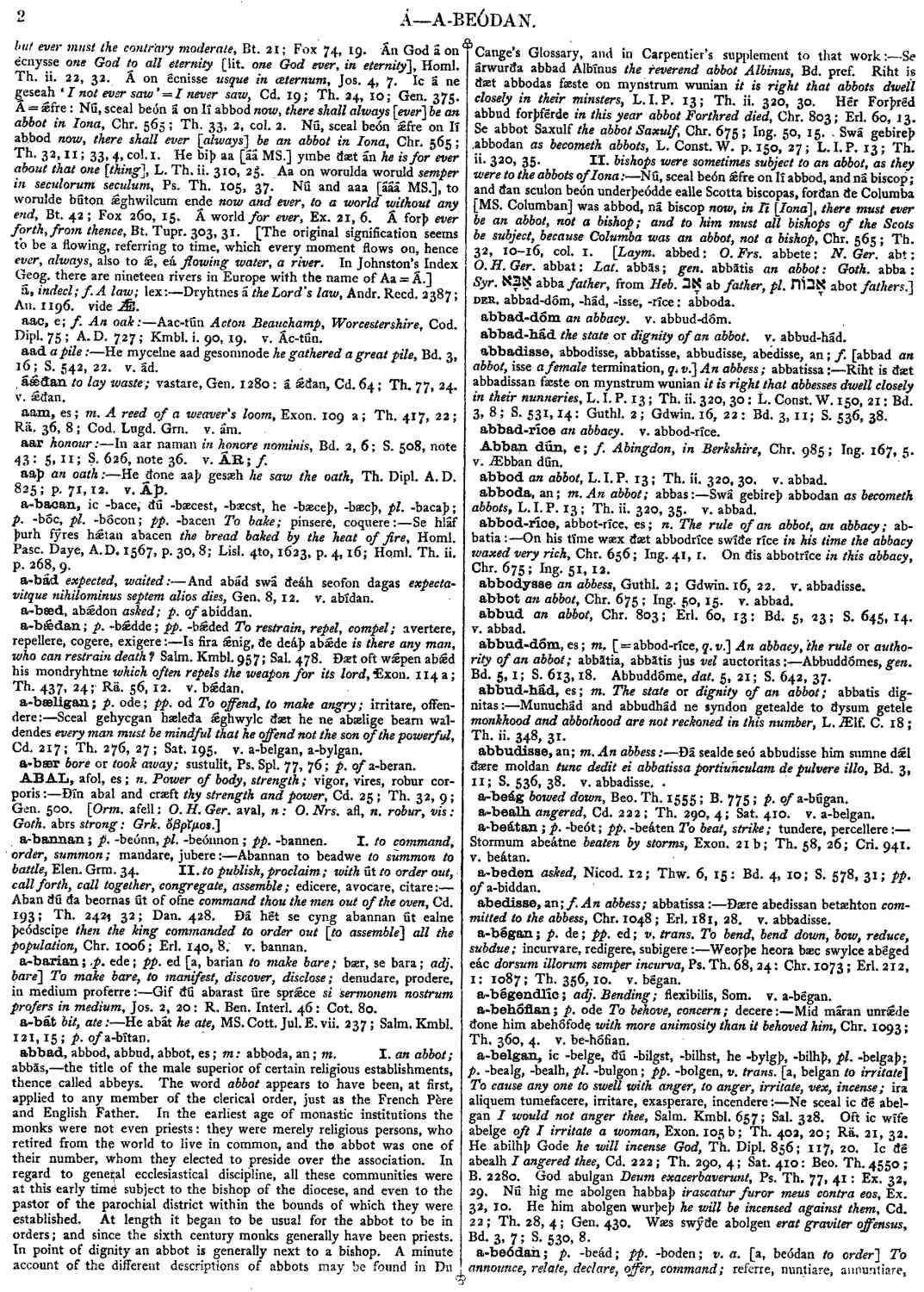abbad
- noun [ masculine ]
-
Se árwurða abbad Albínus
the reverend abbot Albinus,
- Bd. pref.
-
Riht is ðæt abbodas fæste on mynstrum wunian
it is right that abbots dwell closely in their minsters,
- L. I. P. 13; Th. ii. 320, 30 .
-
Her Forþréd abbud forþférde
in this year abbot Forthred died,
- Chr. 803; Erl. 60, 13 .
-
Se abbot Saxulf
the abbot Saxulf,
- Chr. 675; Ing. 50, 15 .
-
Swá gebireþ abbodan
as becometh abbots,
- L. Const. W. p. 150, 27;
- L. I. P. 13; Th. ii. 320, 35 .
-
Nú, sceal beón ǽfre on Ií abbod, and ná biscop; and ðan sculon beón underþeódde ealle Scotta biscopas, forðan ðe Columba [MS. Columban] was abbod, ná biscop
now, in Ií [Iona] , there must ever be an abbot, not a bishop; and to him must all bishops of the Scots be subject, because Columba was an abbot, not a bishop,
- Chr. 565; Th. 32, 10-16, col. l.
Bosworth, Joseph. “abbad.” In An Anglo-Saxon Dictionary Online, edited by Thomas Northcote Toller, Christ Sean, and Ondřej Tichy. Prague: Faculty of Arts, Charles University, 2014. https://bosworthtoller.com/22.
Checked: 1